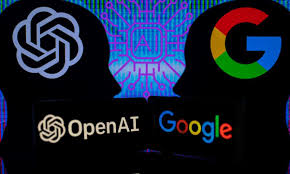
OpenAI Set to Launch AI-Powered Browser in Direct Assault on Google Chrome
Jul 11, 2025 |
👀 109 views |
💬 0 comments
The longstanding peace in the browser market is officially over. In a move that strikes at the very heart of Google's empire, sources close to OpenAI have confirmed the company is in the final stages of developing its own AI-native web browser, with a launch anticipated in the coming weeks.
This isn't just another competitor throwing its hat in the ring. The rumored "OpenAI Browser" is poised to fundamentally redefine our relationship with the internet, transforming the browser from a passive window into an active, intelligent partner.
For over a decade, Google Chrome has been the undisputed king of the web, a gateway for billions of users and the primary funnel for Google's multi-trillion-dollar search and advertising business. Now, the very company that triggered the generative AI earthquake is aiming to create a seismic shift in how we access information online.
What is an "AI-Native" Browser?
According to preliminary reports, the OpenAI browser will integrate its powerful AI models directly into the core user experience. Instead of typing a query into a search bar, users may interact with a conversational assistant that anticipates their needs.
Imagine a browser that can:
Summarize lengthy articles or complex research papers on the fly.
Generate code or draft emails directly within a tab.
Compare products from multiple sites into a single, easy-to-read table without opening new pages.
Create itineraries or research plans based on a simple conversational prompt.
"This is a paradigm shift," commented Dr. Evelyn Reed, a tech analyst at Future-Forward Insights. "Google built its dominance by perfecting the act of finding information. OpenAI's strategy is to eliminate the 'finding' step altogether. It’s about comprehension and creation, not just navigation. If they get it right, it makes traditional search look antiquated."
A Calculated Strike on Google's Lifeline
The move is a direct, existential threat to Google. If a browser can deliver answers and complete tasks without routing the user through a Google search results page, it bypasses the entire mechanism of search advertising. This isn't just about stealing Chrome's market share; it's about rerouting the flow of user intent and, consequently, advertising revenue.
An unnamed source familiar with the project stated, "The goal is to create a more natural and integrated web experience. Why should you have to 'search' for something, click a link, and then read, when the browser can simply give you the answer? We see this as the next logical step in human-computer interaction."
While challenges remain—chief among them user inertia, data privacy concerns, and the robustness of Chrome's extension ecosystem—the potential for disruption is immense. Google will undoubtedly leverage its own formidable AI, Gemini, to counter this threat within Chrome.
But for the first time in years, the battle for the internet's front door is on. As OpenAI prepares to move from being an integrated feature in other browsers to a standalone platform, the tech world watches with bated breath. The browser wars are back, and the battlefield has been completely redefined by artificial intelligence.
🧠 Related Posts
💬 Leave a Comment
